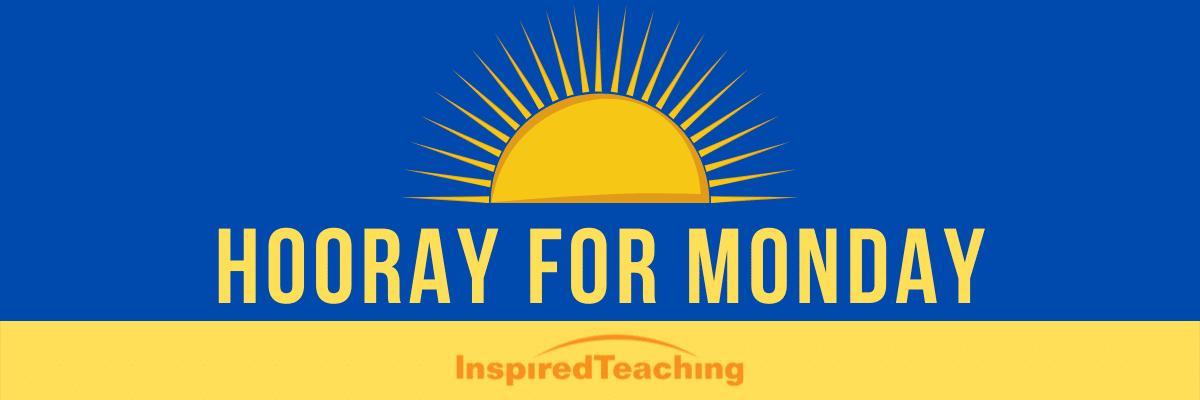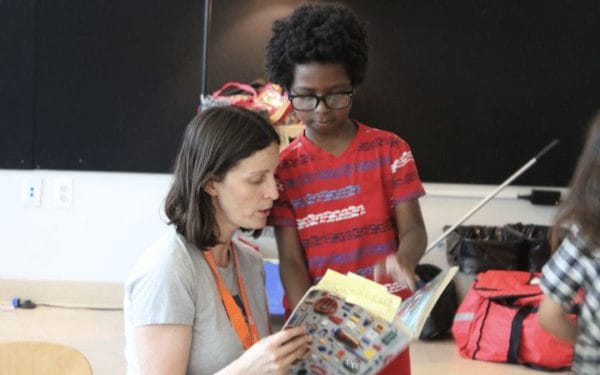October 4, 2021
By Aleta Margolis, Founder and President, Center for Inspired Teaching
Hooray for Monday is a weekly blog filled with questions, ideas, reflections, and actions we can all take to remodel the school experience for students.

Last week I wrote about the importance of engaging with curiosity when students exhibit unwanted behavior. Asking why, and inviting the “offender” to help solve the problem they created signals respect and makes it far more likely that a positive resolution will be achieved.
This week I’m exploring further the concept that curiosity conveys respect – in instruction and in all aspects of interpersonal relationships.
Picture a student struggling to solve a math problem or choose a topic for a written essay. As teachers, we are natural problem solvers, so our instinct might understandably be to help the student solve the problem as quickly and efficiently as possible. A common teacher-student exchange might go something like this:
Student: I’m feeling frustrated with this math problem.
Teacher: Don’t get upset! Here are some strategies you can try… [followed by a series of recommendations/next steps aimed at solving the math problem].
Or, in the case of the essay:
Student: I can’t think of anything to write about for our persuasive writing assignment.
Teacher: What about all the important things that have happened in the news lately? Think about [list of current events that have appeared in recent headlines].

It’s certainly useful for students to acquire effective strategies for solving math problems. And we definitely want our students to be aware of, and care about, the newsworthy items that affect our lives. However, when we jump in and “give” students strategies for doing their work, we are assuming we know what they want (to get the answer right/complete the assignment properly) and what they need (a teacher-provided strategy for doing so).
Instead of making assumptions about what our students want and need, what if we engaged our curiosity and asked them? Imagine asking the student struggling with the math problem: What have you figured out so far? or What kind of help would you like? For the student who’s drawing a blank on essay topics, consider: Can you think of something you wish were different about our classroom or school? or Have you ever read something that changed the way you thought or felt about an issue?
Engaging with students from a place of curiosity, a genuine desire to deepen your own knowledge and understanding of that student, conveys respect and humility. If I’m asking about you, then I’m acknowledging: 1-that you are interesting and worth getting to know, and 2-that I don’t have all the answers.
These principles extend beyond instruction into all aspects of interaction.
Curiosity, and the respect it conveys, are core to building equity. Each time we engage with a student, colleague, parent/guardian, friend, or stranger, we can choose to do so from a place of curiosity instead of assumption. Asking is a far better teaching tool than assuming.
Assumption – about what someone wants, needs, knows, feels, is capable of – undermines equity, and underlies stereotyping and other forms of prejudice. Curiosity, the opposite of assumption, can be a key ingredient in promoting equity as well as learning, in the classroom and beyond it.
It feels good to ask and be asked, about things that matter. May curiosity guide you to new learning this week.
